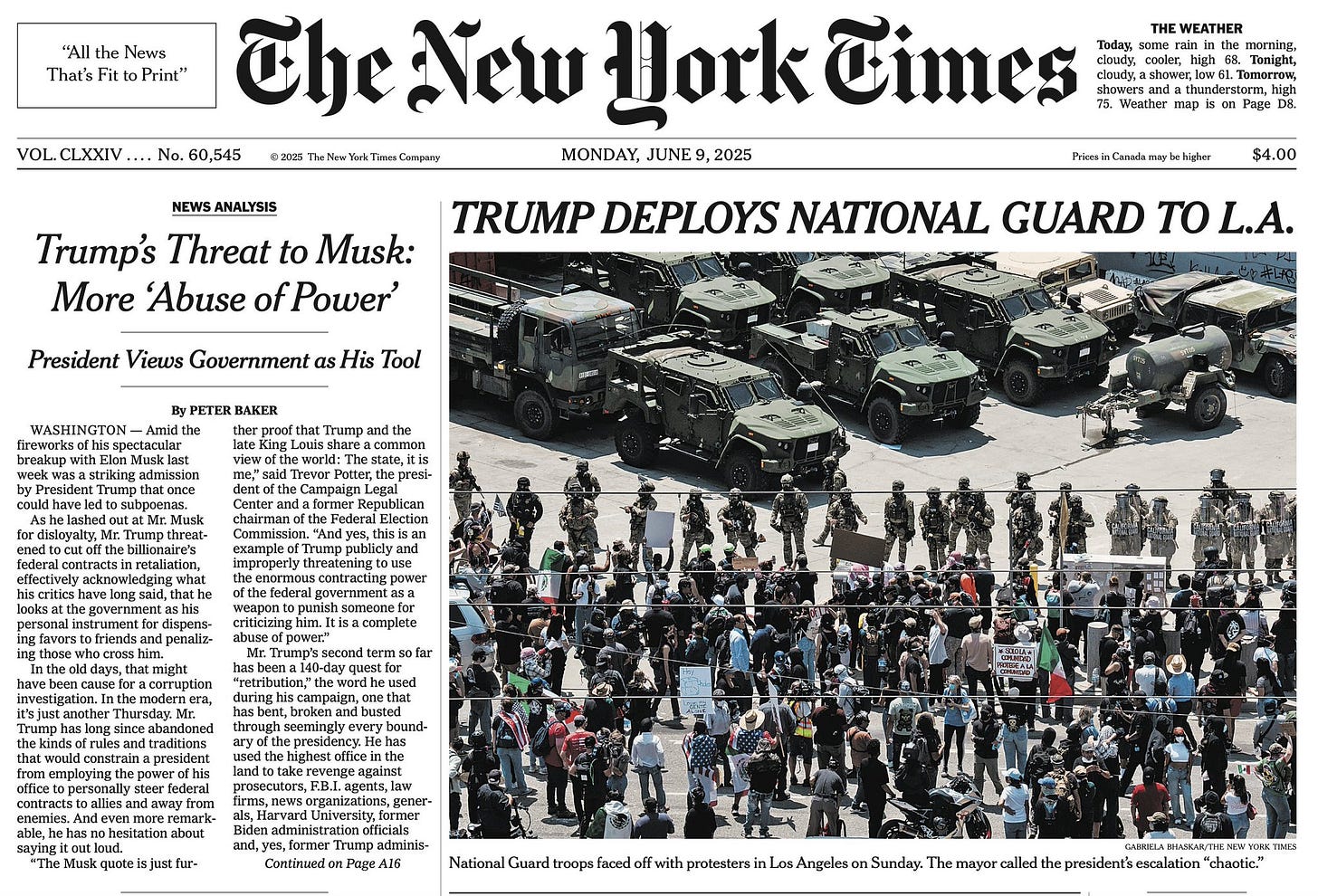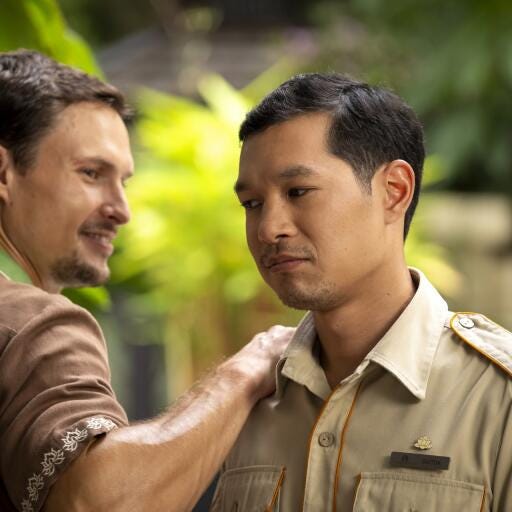What is a guard? The very first thought that comes to mind is “someone to avoid.” An obstacle to be thwarted. You need to see the queen (you need funding; you are an assassin on assignment; she gave you that look at court, like, come find me and I’ll show you the royal treasure), but you can’t get past her guards.
I’m drafting some of this reflection in a community garden at the heart of Smith College, while a few yards away twenty-odd jazz musicians sit in a semi-circle of blue folding chairs learning new chord patterns. Here to participate in the annual Django in June conference, they all wear name tag lanyards color coded by instrument—green is guitar, blue is mandolin… Dozens more lurk in shady corners, more beards than campus sees all year. These are the guardians of Gypsy Jazz.
The function of the queen’s guard is not to protect the queen. The function is to keep an eye on you, to make sure you don’t step over a specific set of lines.
Keep your guard up. Stand guard. Don’t get caught off guard.
A guardian is significantly different. A guardian feels more active, somehow. A guardian is personal protector, while a guard is a fungible NPC. A legal guardian, a guardian angel, Guardians of the Galaxy, winguardian leviosa—it’s wingardiUM, not levi-oh-SA.
A guard makes sure you don’t do something. A guardian makes sure you can do something.
Maybe this is all semantics.
What if the “National Guard” was called the “National Guardians?” Or the “National Guards?”
If we didn’t know better, we might read a headline like “Trump Deploys National Guard to L.A.,” and imagine that he sent one person. Imagine if he sent one person!
We guard against known potential dangers. Lightning rods, airbags, distinct and separate branches of government.
The Changing of the Guard (or Guard Mounting, the official term) is a famous English roadside attraction. Might be the oldest continuous roadside attraction in the world. What’s it like being the owner of the t-shirt kiosk across the way from Buckingham Palace? Is there a t-shirt kiosk there? More than one? I’ve never been to England. What’s it like running a t-shirt kiosk in Washington D.C. where you buy a MAGA hat in Pride colors or a Kamala Harris beanie, whichever you choose, while supplies last. I’d love to see a changing of the guard. I’d also pay to see a guard mounting.
The Mall of America is not the same as The National Mall.
Guards, Guards, is the title of a 1989 Discworld novel by Terry Pratchett in which metropolitan police stop a religious fundamentalist terrorist coup.
Face guards are worn for softball, but not baseball, because we all know our daughters’ most valuable asset is her face.
What about our boy’s faces? Who will guard them from the shame self-imposed after three consecutive strikeouts? There is crying in baseball!
Bite guards protect your teeth. Mouth guards protect your smile. Shin guards are self-explanatory, but color guards and honor guards are not.
“En garde” to start fencing, and fencing guards against the neighbor’s dog and the neighbor.
Safeguards are in place to guard the safe at your place.
In Season 3 of the HBO series The White Lotus, Gaitok is a security guard with ambitions to become a bodyguard. He isn’t very good at guarding security, and even worse at guarding bodies.
“Blood!” says Clark Kent. He’s just given up his powers to live as a mortal with Lois Lane, and in his first attempt to defend her honor, has his ass handed to him by a nameless truck stop moron. He’s never seen his own blood before. “I think we’d better hire a bodyguard from now on.”
“I don’t want a bodyguard,” says Lois. “I want the man I fell in love with.”
“I wish he were here.”
The best-selling movie soundtrack album of all time is The Bodyguard, from 1992, which is a Whitney Houston album in disguise.
I’m drafting some of this reflection while waiting for service on my Subaru. A woman sits across the room watching The Price Is Right. Every time someone makes a guess she says, “oh boy.” She says it five or six times in 25 minutes, “oh boy, oh boy.” The mechanic pops in and says to her, “Sarah? You’re all set.”
“Oh,” she says, and I blurt, “boy!” and she shoots me a look that could change your oil.
Regular maintenance guards against breakdowns.
Rilke says you can’t ever fully know a person, not even your most intimate partner (or something… I forget the exact quote…). What happens in someone else’s mind? You hardly know your own mind—you hardly look, probably—so why expect to know another’s? The best we can do for our partner is guard their solitude.
There are two guards on the basketball team, plus two forwards, and the center. What if the Supreme Court took positions like the basketball court? Would they be better guardians if one always played center?
“Reflecting on a word is quiet, solitary work, each person delving into her memory for phrases, words, and images evoked by the word, writing these down as they come to mind. The point of a reflection is not to winnow or define a word. The point is to uncover some of the richness of layered meaning the word embodies. …anything looked at closely—a flower, a leaf, a seed—opens up a world.”
—Patricia Carini,







Great post. Right now, it feels like many of need to be guardians and appreciate the guardians where we can, to flourish despite the threat (or hindrance) caused by those controlling the guards.
If you're not already familiar with him, you might enjoy David Whyte's writing. He's a poet/poetic essayist, but the also explores single words through a discerning eye.
Interesting read. I’d add that in many movies, love happens when the main character let their guard down and go on some kind of adventure. The guard isn’t just about keeping others out, it’s also a gatekeeper between the familiar and the unknown.
When you keep the guard, life can become flat, tasteless, frictionless.
So it’s not just that others are kept out.
The person who’s guarded is also locked away from everything that could surprise or move them.